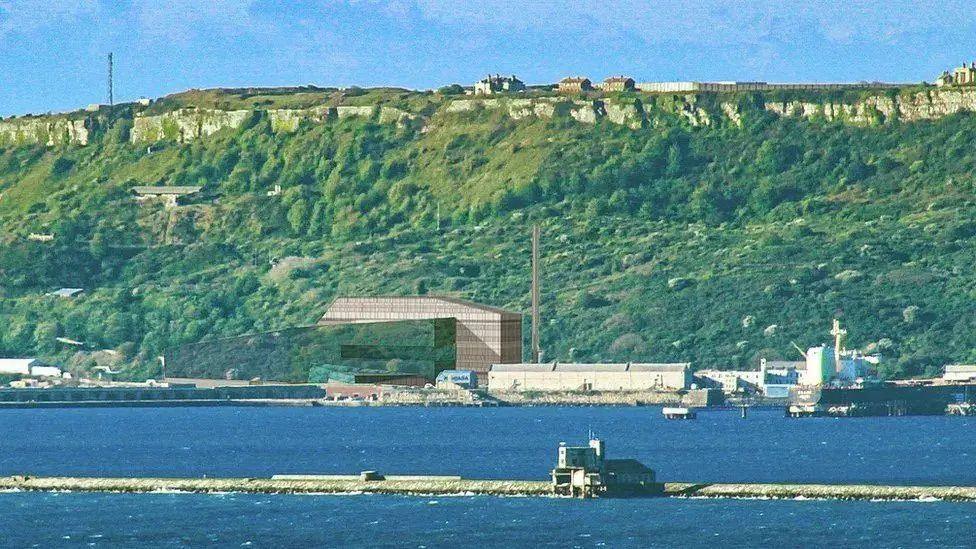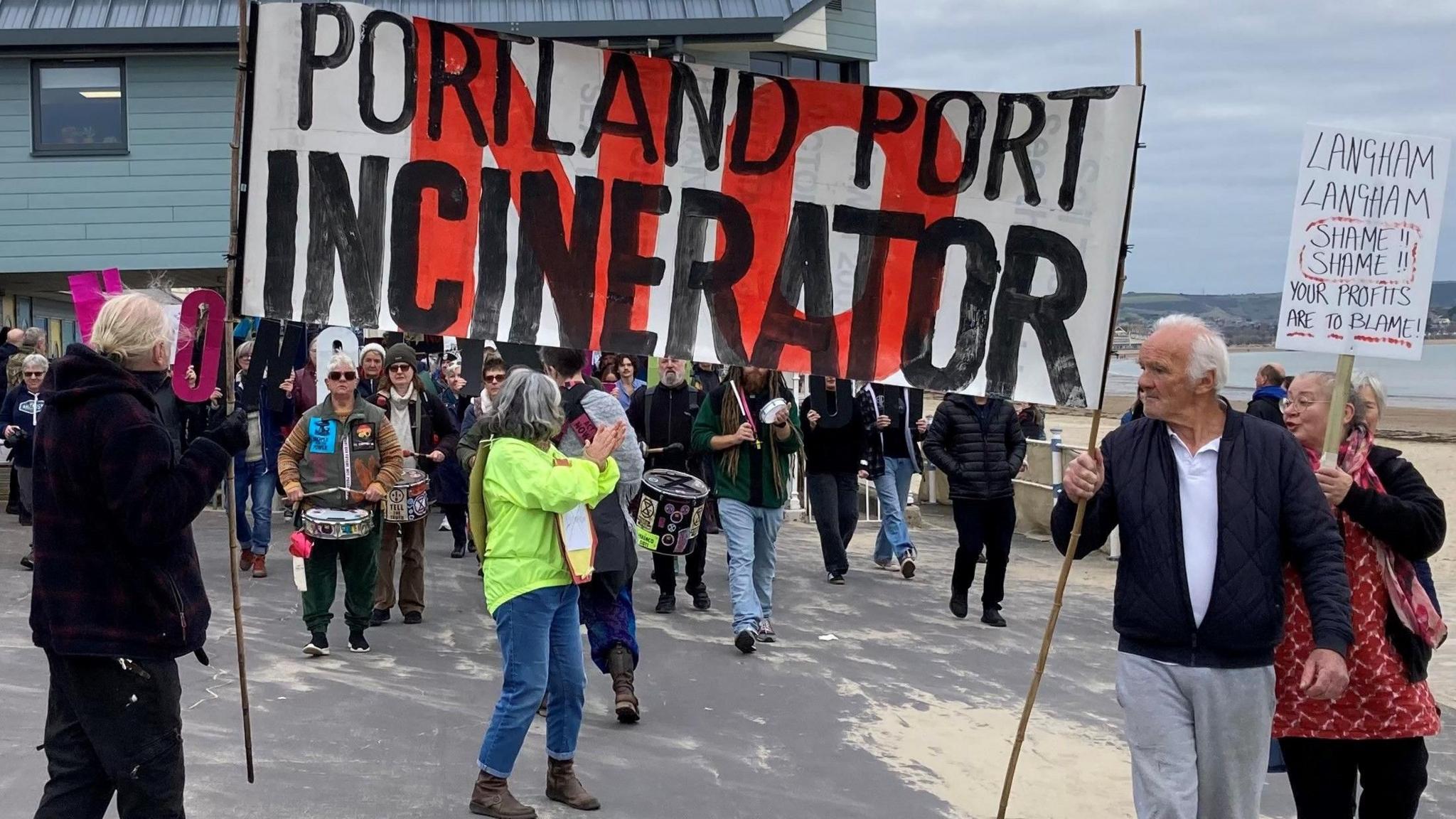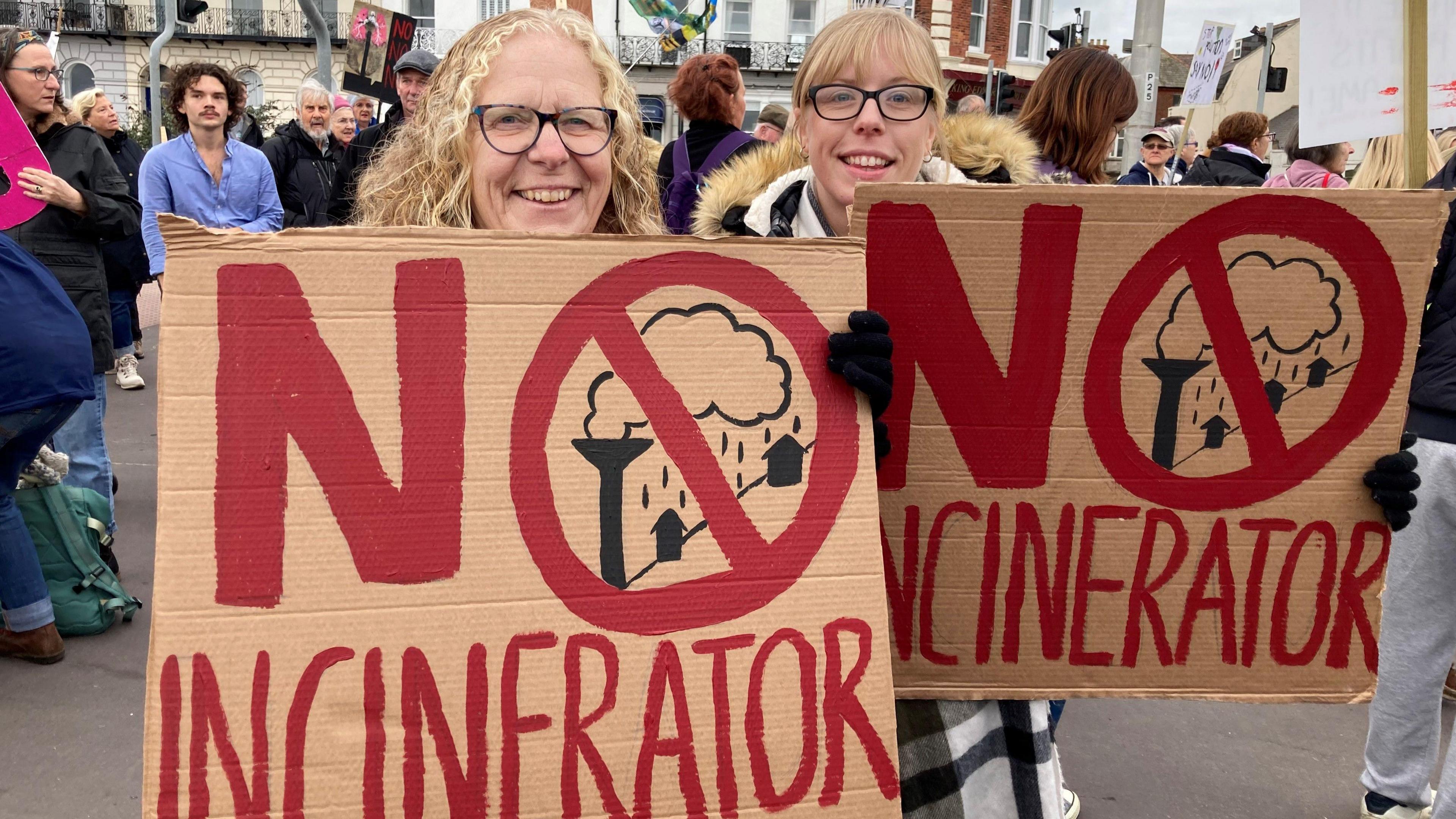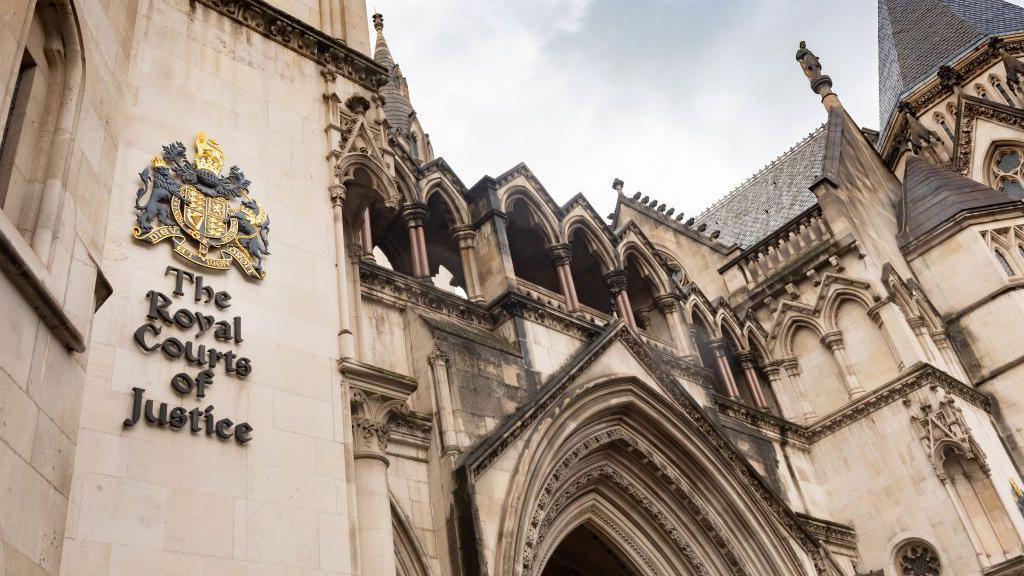Incinerator plans review approved by High Court

The site is on the north eastern corner of the Isle of Portland, on land owned by Portland Port
- Published
A High Court review into plans to build an incinerator near Dorset's Unesco World Heritage site has been given permission to go ahead.
The facility, planned for land on Portland Port, was given the go-ahead by the government in September, despite initially being refused by Dorset Council.
The Stop Portland Waste Incinerator (SPWI) group, which filed the case to the High Court for a statutory review of the decision, said it was "delighted" that the hearing had been approved.
Powerfuel Portland, the company behind the plans, said it remained "confident of a positive outcome".
The SPWI request for a statutory review has been upheld on the grounds that the Secretary of State's decision "does not satisfy" Dorset Council’s Waste Plan.
This designates specific sites for waste disposal nearer to major waste generating settlements in the county.

Hundreds of people joined a protest against the plans last month
Debbie Tulett, who filed the legal challenge on behalf of SPWI, said the decision to accept the review was "fantastic news".
"Although I know there were those that doubted it would get to the High Court, the fact that the judge agrees that Ground One of our claim is arguable with sufficient prospect of success, I feel this at least vindicates our decision to bring about this claim," she added.
Campaigners began their legal efforts to reverse the government's ruling on the site, near the Jurassic Coast, in October.
Giles Frampton, Powerfuel Portland's director, said: "It is quite proper that due process is being served and that the highest level of scrutiny is being applied to the project, and we were pleased that the judge dismissed two of the three grounds cited."
"We look forward to delivering much needed baseload power to the port, while providing a significant boost to the Dorset economy and assisting Dorset's waste authority in meeting its own obligations under the Dorset Waste Plan," he added.
The BBC understands the High Court hearing into the case is expected to take place early next year.
What is a statutory review?
If an interested party, such as the campaigners against the incinerator plans, think the verdict of a government planning inspectorate is legally incorrect, then they can take the case to the High Court.
Once an application for a statutory review is filed, it must receive permission to be heard from a High Court judge.
A hearing would then take place at the Royal Courts of Justice, with the points of law argued by both sides before the judge comes to a verdict.
In a statutory review, the aim for an appealing party is for a decision to be quashed - meaning the case would then be sent back to the planning inspectorate to be re-examined.
This could still end with the inspectorate approving the decision.
If a statutory review fails, the case may be taken to the Court of Appeal - although this would incur even more costs and there is no guarantee that it would overturn the High Court's verdict.
Get in touch
Do you have a story BBC Dorset should cover?
You can follow BBC Dorset on Facebook, external, X (Twitter), external, or Instagram, external.
Related topics
- Published5 December 2024

- Published16 November 2024

- Published2 November 2024
